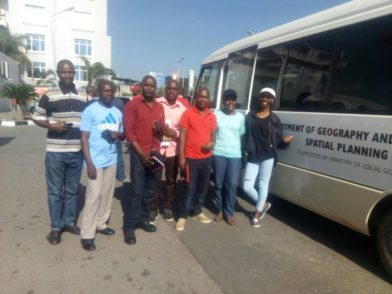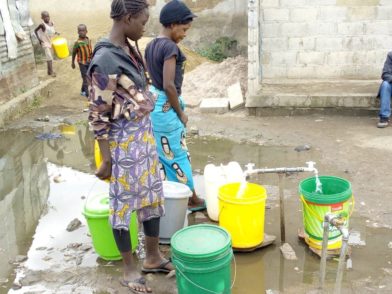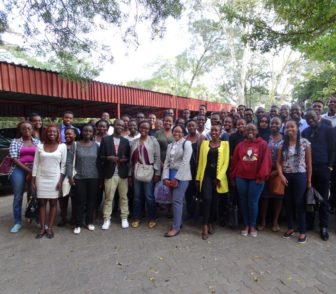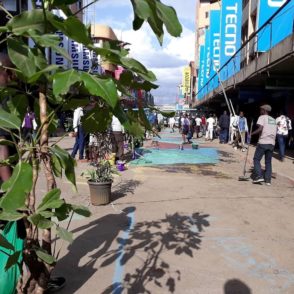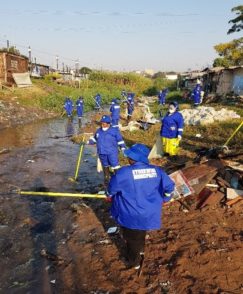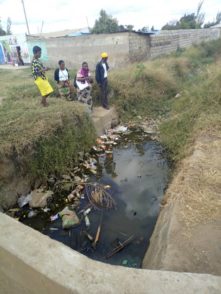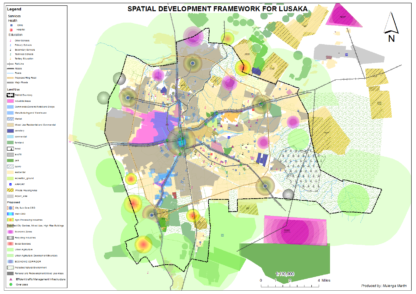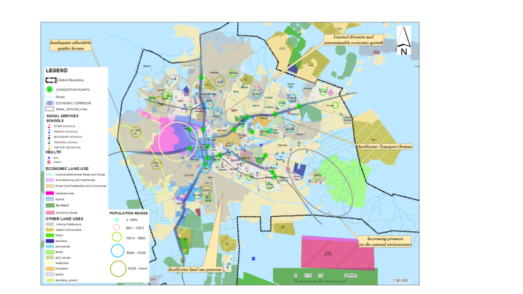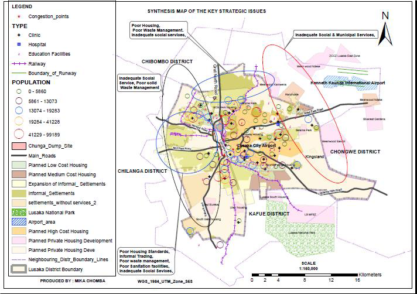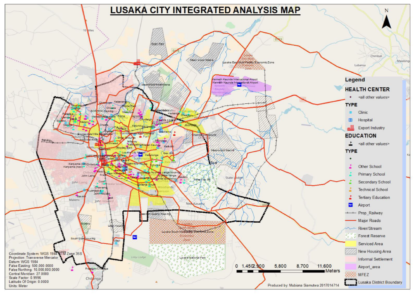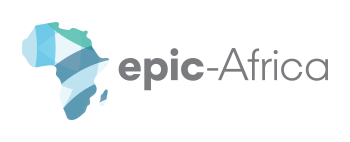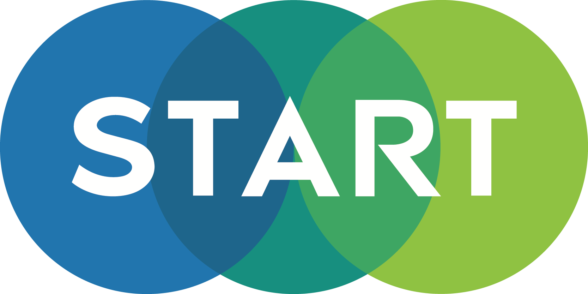Expansion of the EPIC (Educational Partnerships for Innovation in Communities) Model in Africa
February 3-6, 2020
EPIC Africa leaders to host regional network workshop to share progress and expand number of programs! The Kwazulu Natal – EThekwini Municipality EPIC programme, one of the founders of EPIC Africa, is hosting the February workshop in collaboration with START International.
Read the UNEP Press Release!
Check out event photos here!
The aim of this workshop is to expand the EPIC model in Africa and expand the EPIC Africa network through training a new group of trainee pairs from African cities, training of trainers, identification of locations and leverage points for follow-on trainings, and exploration of how to better adapt the EPIC model to African contexts.
Event objectives include:
- Expand the EPIC Africa Network by conducting a 3-day training on the EPIC model for additional pairings of African city and university officials interested in implementing the model in their respective settings. Prospective trainee pairs have been identified from Mombasa (Kenya), Harare (Zimbabwe), Paynesville (Liberia), Accra (Ghana), Blantyre (Malawi), and the cities of Maputo, Nacala, Quelimane and Pemba in Mozambique. Workshop trainers at the event include 3 Africa-based trainers and trainers from the EPIC-N Secretariat in the US, with the training led by the African trainers.
- Use the location of the training to build capacity in climate change adaptation – Durban has a global reputation for leading in innovative approaches to climate change adaptation in the developing world. Hosting the training will provide opportunities for peer-to-peer learning exchange during a planned site visit to Durban adaptation projects, some of which are utilizing the EPIC Model.
- Map a path forward for EPIC Africa – The proposed workshop will inform discussions during and immediately after the event regarding how to further expand the support of those attending the workshop and the numerous others looking to engage with the EPIC Africa regional network. The EPIC-Network, EPIC Africa, and START will work closely together to draw on their extensive work with scientists and multi-sector professionals across Africa to chart a way forward for expanding the EPIC Africa regional network to other parts of the continent.
Agenda
Monday, Feb 3 – Introductions and Site Visit
Tuesday, Feb 4 – Wednesday, Feb 5 – Trainings for Pairs
Thursday, Feb 6 – EPIC Africa Strategy Discussion With Observers and Partners
More detailed event agenda will be sent to attendees shortly!
Attend the Event
The event will be hosted in Durban. The event has a capped participant capacity to insure attendees receive a quality experience. To inquire about attending the event, please use the contact information below.
Contact
Event Logistics
Mzime Ndebele-Murisa
Program Specialist
START – Zimbabwe, Africa
mmurisa@start.org
Mary Thompson-Hall
Senior Program Specialist
START – United States
mthompson-hall@start.org
Workshop Host
Sean O’Donoghue (PhD)
Senior Manager: Climate Protection
EThekwini Municipality
EPIC Africa Co-Coordinator and Workshop Host
Sean.O’Donoghue@durban.gov.za
Other EPIC-Network Questions
Marshall Curry
Program Manager
EPIC-Network
mcurry@epicn.org
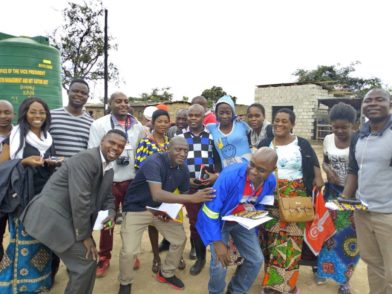
Background
EPIC Africa
In November, 2017, EPIC Africa became the EPIC-Network’s first regional network outside of the United States. In an effort to build more confidence in the transferability and adaptability of the EPIC Model to a Global South context, EPIC leaders hosted a 2-day regional-scale training on the EPIC Model in Cape Town, South Africa in November of 2017. This event was limited to officials from southern African cities and universities. Trainer pairs at the event, received the model and the training so well that the trainee pairs in attendance elected to form the first EPIC network outside of the US and dub it the EPIC Africa network. Emerging from this training were three early adopters who have gone on to initiate their own programs in Lusaka (Zambia), Durban (South Africa) and Nairobi (Kenya). These programs have highlighted the versatile and adaptive nature of the EPIC Model.
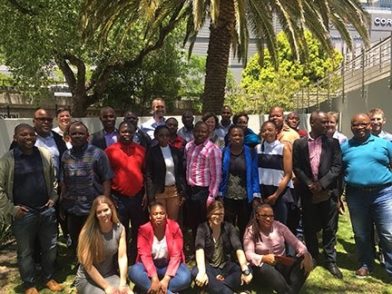
Since its establishment, the EPIC Africa network has remained quite active, inspiring adoption of the model by several other programmes implementing projects in their respective settings using the EPIC partnership model and meeting monthly online to receive assistance from the EPIC-N Secretariat.
The leadership of the EPIC Africa regional network view Africa-led training as essential for successfully and sustainably expanding the EPIC Africa network. While the long-term goal of the EPIC Network is to deploy the EPIC model across regions more broadly, the most immediate goal is to build on the success of the EPIC Africa network and expand the EPIC Africa network into other parts of Africa.
The EPIC-Network
The EPIC-Network (EPIC-N) is the collection of institutions that have successfully adopted this new model for community innovation and change. There are currently 38 institutions implementing this model. In addition, because of this growth in the number of institutions implementing the model, EPIC-N members have established a secretariat, along with an executive and advisory board, to support the information and training needs of its members, document and share the growing number of successful EPIC projects undertaken and to continue to expand the network. Now ten years in the making, EPIC-N members have completed well over 1,200 projects resulting from various implementations of the EPIC model representing hundreds of thousands of student hours devoted to these projects to date.
The EPIC Model
Each institution in the EPIC-Network adapts the EPIC Model to their local context. This model matches the real-world needs of cities and local governments with the skills, intellectual resources and creativity of university students and faculty in a unique and radically simple manner. The matching process is designed to enhance the capacity of cities and communities to become more sustainable, resilient, and adaptable to climate change. An EPIC partnership fosters community innovation and leverages the largely untapped expertise concentrated in a university geared towards tackling real-life sustainability challenges within a community or city, which in turn provide university students the applied learning experiences that they need to further develop professionally. The EPIC model is highly adaptable to different governance structures, localities, cultures and content areas. Moreover, EPIC partnerships and EPIC networks tend to be self-sustaining, self-supporting and self-led. In the gallery below you will find photos illustrating activities performed by community, university, and student leaders including examples of finished products created by students for the community partners.
START
At the intersection of science, policy and practice, START programs link science with society to advance locally and regionally-driven actionable knowledge. START programs and partnerships provide opportunities for training, research, education and networking that strengthen scientific skills and inspire leadership for advancing solutions to critical sustainability challenges.
